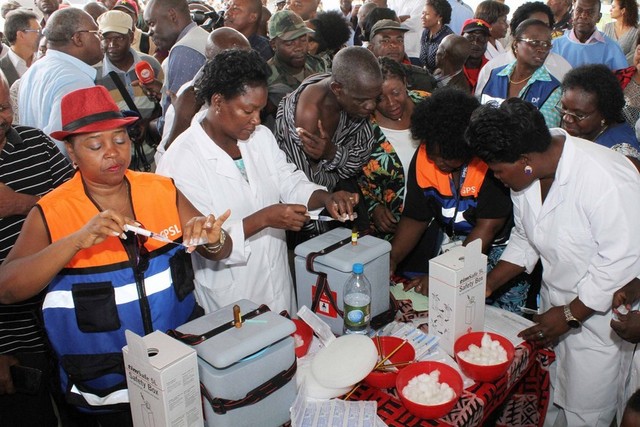
The Ministry of Health in Uganda has launched a nationwide yellow fever vaccination campaign to protect its population against the mosquito-borne disease. By the end of April, 12.2 million out of the targeted 14 million people had been vaccinated, according to Dr. Michael Baganizi, an immunization official. Uganda will now require a yellow fever vaccination card for all travelers entering and leaving the country, hoping this mandate will increase vaccination rates amid widespread vaccine hesitancy.
The single-dose vaccine is being offered for free to Ugandans aged 1 to 60 at various centers including schools, universities, hospitals, and local government units in Kampala and other regions. Previously, Ugandans had to pay $27 for the shot at private clinics. With a population of 45 million, Uganda is among 27 African countries at high risk for yellow fever, a disease that causes 200,000 cases and 30,000 deaths globally each year, according to the World Health Organization (WHO).
Earlier this year, outbreaks were reported in the Buikwe and Buvuma districts. Yellow fever is caused by a virus transmitted by infected mosquitoes, with symptoms ranging from fever and muscle pain to nausea and vomiting. Uganda’s vaccination campaign is part of a global initiative launched by WHO and partners in 2017 to eliminate yellow fever by 2026. By August 2022, 185 million people in high-risk African countries had been vaccinated.
Nurse James Odite noted that unused vaccine doses from the campaign will be used in future efforts. Addressing vaccine hesitancy, the government has invested in community sensitization to educate people on the importance of vaccines.
